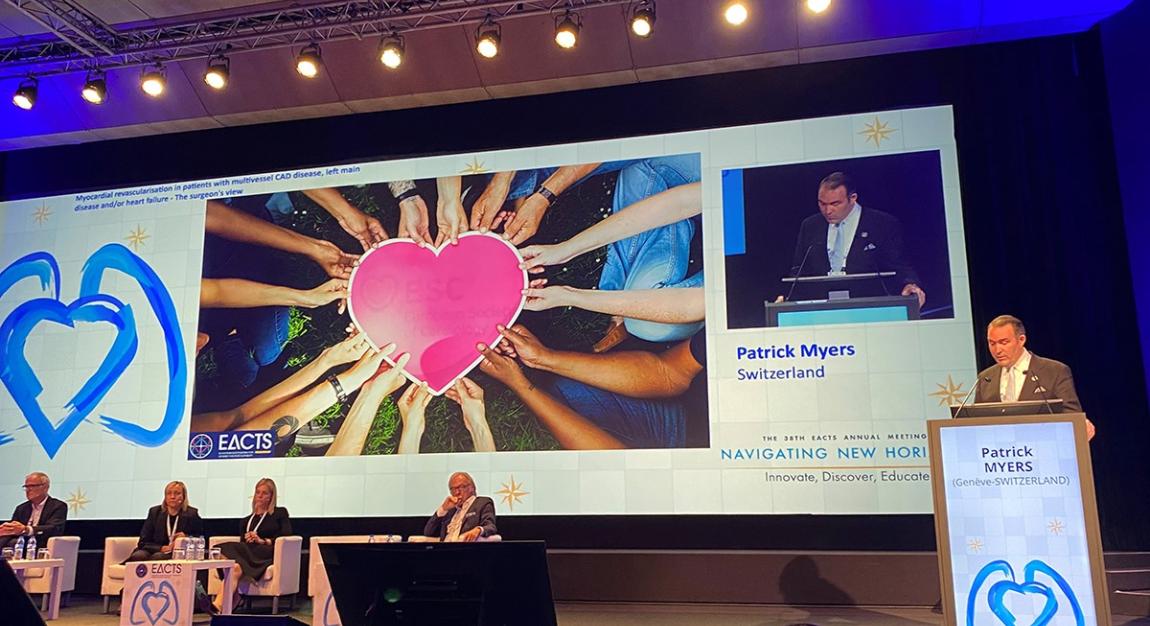At the 2024 European Association for Cardio-Thoracic Surgery (EACTS) meeting in Lisbon, Portugal, leaders in cardiac surgery and interventional cardiology came together, signaling a newfound harmony over coronary revascularization practices for complex heart conditions. This session marked a significant change from the intense disagreements that followed the EXCEL trial controversy five years ago, which raised concerns about data interpretation in revascularization treatments for left main disease.
In a joint session between EACTS and the European Society of Cardiology (ESC), Dr. Alaide Chieffo (Vita Salute San Raffaele University, Milan) and Dr. Patrick Myers (Lausanne University Hospitals, Switzerland) presented a united front on revascularization strategy, referencing the ESC’s recent guidelines for managing chronic coronary syndromes (CCS) with a patient-centered approach. The guidelines, collaboratively crafted by cardiologists and surgeons, reflect a shared understanding of both PCI and CABG as valuable options for coronary artery disease based on individual patient conditions.
“We've gone full circle,” Dr. Myers told TCTMD. “The latest guidelines have a left main chapter that EACTS endorses because we all feel that this represents the evidence best. It's very positive to see that we've gone from surgeons unilaterally looking at the data and saying, ‘Wait a minute, this is not reasonable. We don't agree with this,’ to saying, ‘Okay, let's work on this together.’” His comments underscore the shift from discord to collaboration in developing best practices for patients with multivessel coronary artery disease, left main disease, and heart failure.
EACTS President Dr. Volkmar Falk (German Heart Center Berlin) echoed this sentiment, emphasizing that the endorsed guidelines demonstrate alignment with cardiologists and aim to serve patient needs effectively. He urged further collaboration by encouraging attendance at cardiology-focused conferences, saying, “Go to ESC, go to EuroPCR, be present at these meetings, and engage in the discussion there. It’s one thing to discuss this here at EACTS… We have to also join our cardiology friends and go to their meetings.”
In her presentation, Dr. Chieffo underscored that a “patient-centered” approach should guide heart team discussions for complex cases and highlighted that care recommendations depend on various factors—including hospital capabilities. She explained that CCS guidelines offer a Class I recommendation for CABG in low-surgical-risk patients and for PCI in low-anatomic-complexity cases, stressing that patient-centered care takes into account individualized patient needs rather than simply following patient preferences.
With the introduction of these guidelines, both EACTS and ESC reaffirm their commitment to improving outcomes through collaboration and shared expertise across disciplines, reflecting a renewed spirit of partnership in cardiovascular care.
